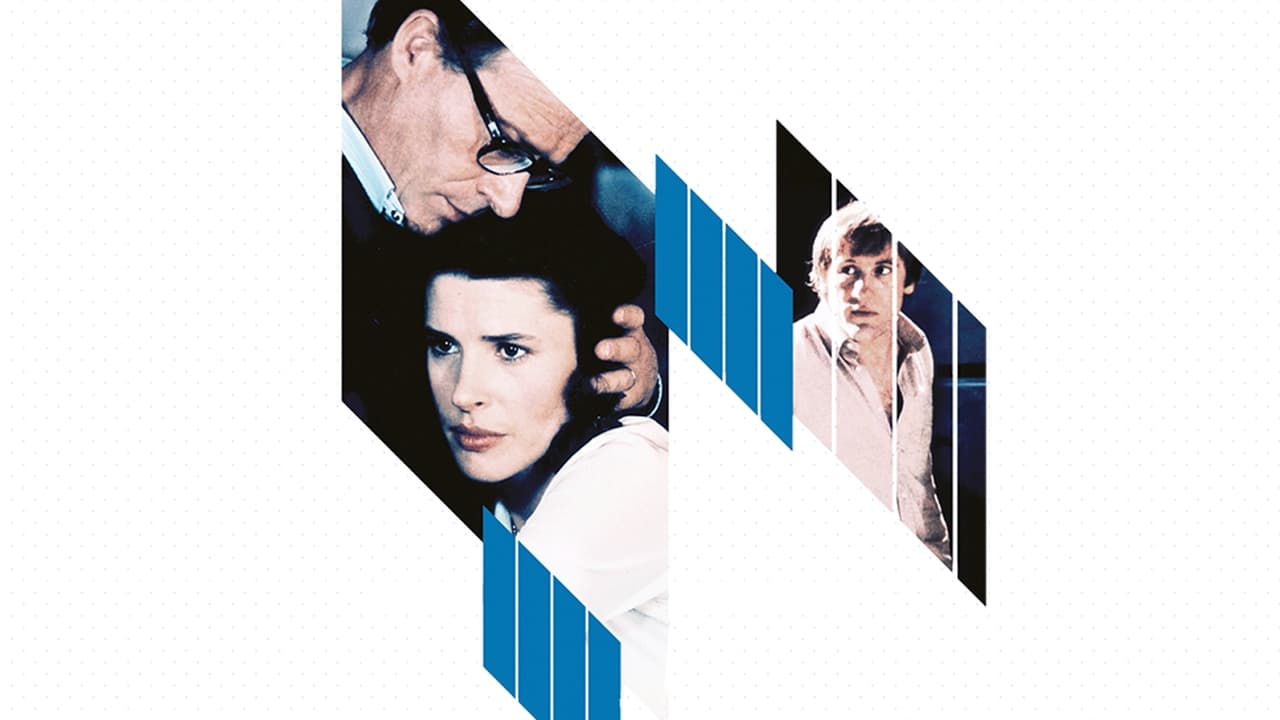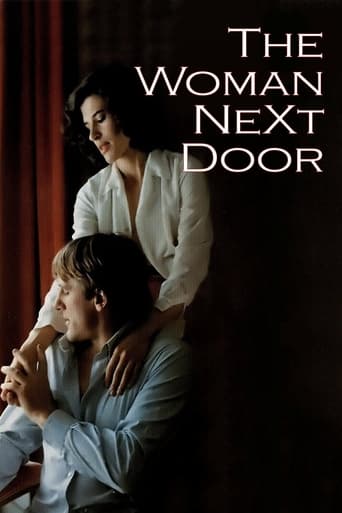Organnall
Too much about the plot just didn't add up, the writing was bad, some of the scenes were cringey and awkward,
SeeQuant
Blending excellent reporting and strong storytelling, this is a disturbing film truly stranger than fiction
Melanie Bouvet
The movie's not perfect, but it sticks the landing of its message. It was engaging - thrilling at times - and I personally thought it was a great time.
Roy Hart
If you're interested in the topic at hand, you should just watch it and judge yourself because the reviews have gone very biased by people that didn't even watch it and just hate (or love) the creator. I liked it, it was well written, narrated, and directed and it was about a topic that interests me.
Atreyu_II
Although not too extreme, this is a harsh and nearly sick movie about love. Or, to be more precise, the dark side of love. It starts off as a perfectly normal movie: an ordinary man named Bernard Coudray lives with his wife and his innocent son Thomas. This family leads a normal life, plus Bernard doesn't seem to be the kind of guy who looks for problems where they don't exist. That is, until Mathilde (an ex-lover) unexpectedly becomes his neighbor. Seemingly concerned with her presence, Bernard avoids her at first, but it doesn't take much time until their affair begins... a strange and completely crazy love affair, I'll say! Not even these two people understand their love/hate relationship. It's as if they can't be with each other and yet they can't be without each other.Overall, an okay movie but far from being great. It affects you in some way, however, as most Truffaut's films do somehow. The most affecting part of this one is the tragic ending. The sick side of love in this movie alone is enough to make you fear falling in love but the ending definitely scares you off from that.A young Gérard Depardieu stars here in one of his best actings and movie roles and, unlike in much later movies, here he is perfectly normal and doesn't overact and isn't annoying. Fanny Ardant is great too. Véronique Silver plays well the interesting character Madame Jouve and Olivier Becquaert is excellent as sweet little Thomas.
Michael Neumann
Family man Gérard Depardieu is disturbed to learn his new neighbor is, by sheer coincidence, ex-lover Fanny Ardant. Both are happily married, but that doesn't stop them from resuming their affair, with tragic consequences.The script is nothing new, but François Truffaut's intelligent treatment of the otherwise familiar story avoids the more obvious clichés of popular romantic fiction. It hardly ranks among the director's best efforts, but a pair of talented co-stars and the typically French pre-occupation with l'amour fou help maintain interest all the way to the startling conclusion.
MartinHafer
This was a really unusual and very interesting film--especially since the way the movie ends took me by surprise. I won't reveal it, as it might spoil the impact.However, there is a serious problem with the plot. Like some other Truffaut films (such as Confidentially Yours), the main theme of the movie MUST be sustained by the actors behaving, at least initially, in a very improbable manner. Let me explain. The leading man and his family live next to a house that is for rent. A man leases it and when the first couple meet the new neighbors, the leading man realizes the new neighbor's wife is his old lover. This all occurs by chance. Okay. This is REALLY improbable but what happens next REALLY strains credibility. Neither the leading man or his ex-lover tell their spouses the truth about their past and this leads to a lot of uncomfortable moments. Considering BOTH were unmarried when their affair occurred and they currently had stable and loving marriages, it just didn't make sense why they didn't bring it all out into the open and have a good laugh about it.If you ignore this credibility gap, the rest of the movie is really good and takes a lot of surprising twists. It's worth a watch, but is far from Truffaut's best.
writers_reign
Believe it or not I want to like Truffaut, I really do, but I wish he'd give me a little help in spots. Coincidentally the opening shot - an ambulance leaving a country house clearly laden with the dead - is not unlike the opening shot of Chabrol's latest film, The Bridesmaid. In both cases we know that a given situation has ended in tears and that we are now about to be taken back to the beginning and be privy to its playing out. Despite an antithpathy to Chabrol's leading man and an admiration and respect for Both Truffaut's leads I found it hard to get anything from the Truffaut. I don't really mind his cardboard characters and cardboard situations but if only he had gone to Galeries Lafayette and not Poundstretchers for the cardboard. I've already upset one reader who seems incapable of grasping an essential of journalism is provocation which generates those letters to the editor and understands even less that opinion masquerading as fact is one of the best ways to do it via earlier comments on Truffaut and he seems destined to suffer even more anguish in a moment when I say that I was astounded when this disciple of the 'now', whose mantra was that new is better than good actually used - and not once but twice - an IRIS OUT which dates back to D.W. Griffith. Prior to that he was using Fades extensively. Shame on you, Franny, where's all that nouvelle vague thinking. The 'story' would fit on the head of a pin and still leave room for the King James version of the Bible; Bernard Coudray (Depardieu) is living happily with wife Arlette (Michele Baumgartner) in the middle of East Jesus when the empty house next door is suddenly occupied by Philippe Bauchard (Henri Garcin) and his wife Mathilde (Ardant). 'Meaninful' glances between Depardieu and Ardant complemented by music cues as subtle as a cream pie in the kisser alert us to the fact that these two have a history. Now it's only a question of how long before they get back in the sack and one of them says 'if I can't have you no one will'. Depardieu and Ardant are class acts and they almost create believable characters but with no help from either script or direction their hands are tied. Worth seeing - once if only to learn how NOT to do it.

